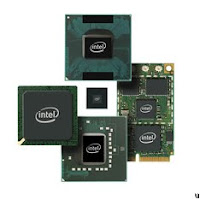At one time, a chipset was a collection of dozens of individual electronic components. In today's computers, however, manufacturers have combined all the traditional functions of this essential support circuitry into a few large integrated circuits. In computers, in fact, the entire chipset has been squeezed into a single package. Typically the integrated circuit or circuits that make up the chipset are squares of black epoxy sitting on the main computer circuit board, usually the largest individual electronic components there, except for the microprocessor.
Computer and Information Technology for novices people in the computer technology to manage and maintain thier computers and developing thier skill in the Information Technology.
Monday, August 16, 2010
Chipset
The chipset of a computer provides vital support functions to its microprocessor. The chipset creates signals that are the lifeblood of the microprocessor, such as the clock or oscillator that sets the pace of its logic operations. In addition, the chipset links the microprocessor to the rest of the computer, both the memory and external functions, through input/output ports. The chipset also provides the vital link to your computer's expansion bus that enables you to add new capabilities to its repertory. The chipset is so important that in most computers it affects the performance and operation of the system as much as does its microprocessor. In fact, for some knowledgeable buyers, the choice of chipset is a major purchasing criterion that distinguishes one computer from another.
Subscribe to:
Post Comments (Atom)

No comments:
Post a Comment